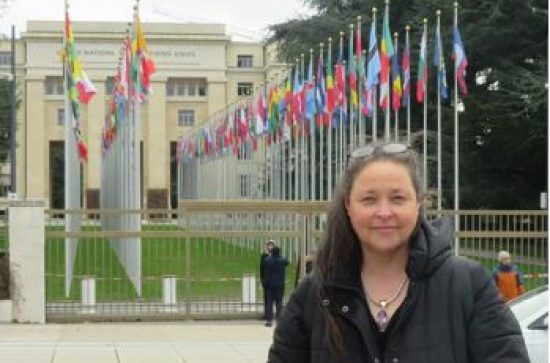
The United Nations Convention on the Rights of the Child is an international human rights treaty adopted in 1989. It has become the most rapidly and widely ratified human rights treaty in history, with 196 countries, including Ireland, ratifying it. As a signatory to the Convention, Ireland is obliged to undergo periodic review by the United Nations Committee on Child Rights. This involves the State submitting a report and attending for examination at the UN. A Parallel or Shadow Report is submitted by civil society organisations outlining their assessment of the Government’s progress in protecting and promoting the rights of children. Last week Ireland’s combined 5th and 6th periodic report was under review by the Committee in Geneva, Switzerland.
Maynooth University has, for some years, taken a lead in responding to human trafficking through internationally recognised research (C. Murphy; D. Doyle, M. Murphy, R. Bandiera), and provision of cross-departmental and cross-sectoral education. Dr Niamh Flanagan (Department of Applied Social Studies) Coordinator of the postgraduate module on human trafficking, in Maynooth University, joined the civil society delegation in Geneva last week to highlight the issue of child trafficking. Dr Flanagan provided a policy brief to members of the Committee Task Force on key concerns and shortcomings in Irish systems.
Despite the fact that Ireland is acknowledged to be a destination, source and transit country for victims of child trafficking, and has been found to not fully meet minimum standards for the elimination of trafficking, little public or political attention is paid to the issue of child trafficking. It remains largely hidden and unknown. Globally, one in three victims of trafficking are children and across our soft border in Northern Ireland, one in six victims of trafficking are children. However, for two years the Republic of Ireland has failed to identify any child victims of trafficking. This is not because this heinous crime is not perpetrated in Ireland. Indeed, Tusla have enumerated suspected cases, and EU Experts concluded that that the absence of identified victims does not reflect the reality of the situation in this country. Rather the country has failed to identify victims because, the system for identifying victims is believed to have “ground to a standstill”, and Ireland lacks the tools and procedures necessary to identify child victims.
Although child trafficking receives inadequate political, professional and public attention, civil society is significantly concerned about the issue. The Civil Society Shadow Report, ‘Are we there yet’ prepared by the Children’s Rights Alliance and MECPATHS – education partners of Maynooth University – flagged key concerns about the issue. In addition, organisations such as The Ombudsman for Children, Irish Human Rights and Equality Commission, The former Special Rapporteur on Child Protection, the Irish Human Rights Centre, and a Coalition of Religious Bodies all made reference to it in their submissions to the UNCRC review. Submissions called for the forthcoming mechanism, designed to identify and support victims, to have a child-specific focus; for greater state agency understanding and training; child protection and safeguarding guidelines; and dedicated psychiatric services for victims. Moreover, twenty-two years after agreeing to do so, Ireland has yet to ratify a protocol in the Convention which prohibits the sale of children, child prostitution and child pornography. Civil Society called for immediate action on ratifying this protocol.
At the review, the UN Committee raised the issue of child trafficking with State party delegates, returning to the issue on both days of the review and engaging in robust questioning. UN Committee recommendations have a strong record of influencing child policy in Ireland and the Civil Society delegation remains hopeful that recommendations regarding child trafficking in Ireland will be included in the UN Committee’s concluding observations due in February 2023.
Maynooth University staff continue to stand with civil society partners against human trafficking and child trafficking.
